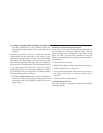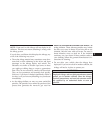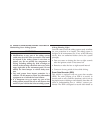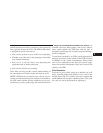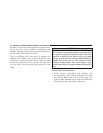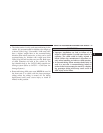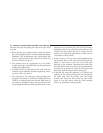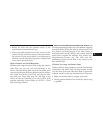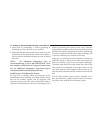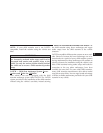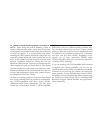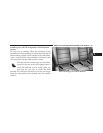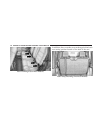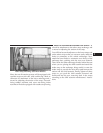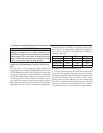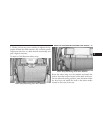
•
Check belt fit periodically. A child’s squirming or
slouching can move the belt out of position.
•
If the shoulder belt contacts the face or neck, move the
child closer to the center of the vehicle. Never allow a
child to put the shoulder belt under an arm or behind
the back.
NOTE: For additional information, refer to
www.seatcheck.org or call 1–866–SEATCHECK. Cana-
dian residents, should refer to Transport Canada’s web-
site for additional information. http://www.tc.gc.ca/
roadsafety/safedrivers/childsafety/index.htm
Installing the Child Restraint System
We urge you to carefully follow the directions of the
manufacturer when installing your child restraint. Many,
but not all, restraint systems will be equipped with
separate straps on each side, with each having a hook or
connector for attachment to the lower anchorage, and a
means for adjusting the tension of the strap. Forward-
facing toddler restraints and some rearward-facing infant
restraints will also be equipped with a tether strap having
a hook for attachment to the tether strap anchorage, and
a means for adjusting the tension of the strap.
In general, you will first loosen the adjusters on the lower
and tether straps so that you can more easily attach the
hook or connector to the lower and tether anchorages.
The tether strap should be routed under the center of the
head restraint and attached to the tether anchor on the
rear of the seatback. Then tighten all three straps as you
push the child restraint rearward and downward into the
seat.
Not all child restraint systems will be installed as we
have described here. Again, carefully follow the instruc-
tions that come with the child restraint system.
66 THINGS TO KNOW BEFORE STARTING YOUR VEHICLE



